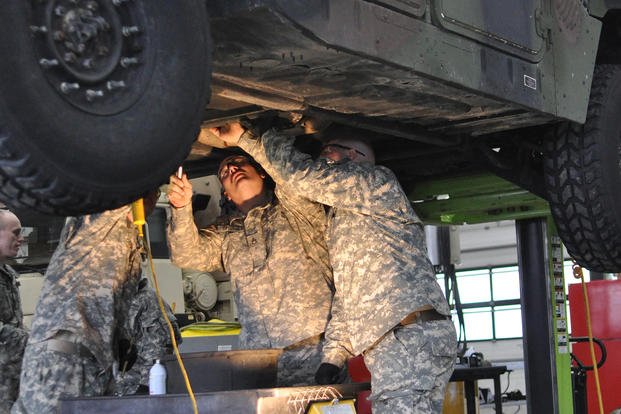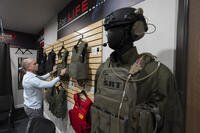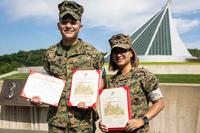Of all the things that have to be considered before joining the Army (or any branch of service, for that matter), the most important is qualifying for, and choosing, a good job. In the military, a job is called a military occupational specialty, or MOS for short. Some of you may be familiar with sorting through the civilian job market, but do you really know how to research the military job field to choose the best fit for you? Here are some helpful tips to guide you toward attaining a rewarding career path.
- First Thing's First: Study for the ASVAB. Setting your sights on a high-speed MOS requires you to perform to a high-speed standard on the Armed Services Vocational Aptitude Battery (ASVAB) test. The ASVAB is composed of 10 subtests that measure your ability in specific knowledge areas, providing an indication of your academic and technical ability. You'll be tested on the following aptitude areas: general science (GS), arithmetic reasoning (AR), word knowledge (WK), paragraph comprehension (PC), mathematics knowledge (MK), electronics information (EI), auto information (AI), shop information (SI), mechanical comprehension (MC) and assembling objects (AO).. Four of these components (AR, WK, PC and MK) comprise the Armed Forces Qualification Test. The AFQT score determines whether or not you can enlist. The rest of the exam components are used in various combinations to determine your qualification for the different career paths.
I strongly suggest getting a study guide before taking the ASVAB. Your local library, bookseller and the internet offer numerous books and articles to suit your particular study habits. It's worth the small investment, not only for better career choices but also because a better or specialized job can mean a signing bonus and the possibility of a retention bonus when it comes to reenlistment.
You can also take the ASVAB Practice Tests found on Military.com. - Ask about job shadowing. Ask your recruiter whether you can spend some time observing service members doing the job(s) you're interested in doing. This will give you the chance to learn firsthand what your responsibilities would be if you choose that military occupational specialty (MOS). It also will give you the opportunity to ask them specific questions about their MOS that your recruiter could not answer. While job shadowing may not always be possible (due to the proximity of a military base, required security clearances or available resources), you always can ask your recruiter to find someone who does that MOS and let you speak to them on the phone or through emails.
- Avoid a "dead-end" MOS. Like the civilian employment market, there are jobs in the military that make it difficult to advance in rank, and nearly impossible to obtain additional skill training. Your recruiter should give you an idea of how your career progression will work within each MOS, but it won't hurt to do some research yourself.
- Research the MOS availabilities between service components. While this doesn't pertain necessarily to those of you who are enlisting in the active-duty component, those of you who are considering service in either the reserves or the National Guard should inquire about the local MOS vacancies within both components before deciding which one to join.
- Consider "sustainability." Thinking about what you'll do when you get out of the military may require some major foresight, but it doesn't hurt to consider whether your prospective MOS training and experience will translate into future civilian life. Many MOS's prepare you for civilian careers in the same field, and it's worth considering an MOS that has cross-training potential.
- Use the blogosphere. Another great way to research an MOS and interact with soldiers who have spent time in an MOS of your interest is to participate in internet blogs. Here you'll find networks of soldiers who can help answer some of your questions and steer you in the right direction. Stick with accredited websites for the best results.
Remember; life is too short to spend four to eight years doing something you hate. Spend a little time now doing your homework before deciding on a career. It'll pay off in the short and long run.
Sergeant Don Herbert is a flight medic (MOS 68W2F) with the Army National Guard. He is the author of the book "63 Days and a Wake-Up; Your Survival Guide to United States Army Basic Combat Training."
Interested in Joining the Military?
We can put you in touch with recruiters from the different military branches. Learn about the benefits of serving your country, paying for school, military career paths, and more: sign up now and hear from a recruiter near you.












